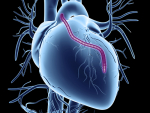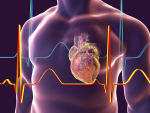Displaying items by tag: department of medicine
ResBiotic Inc. will use the money to develop and commercialize groundbreaking probiotic formulations for lung health.
Tagged under
Knowledge of the specific flagellins that drive the pathogenic immune response in Crohn’s disease is a step toward a potential preventive treatment.
In a study conducted among more than 1.3 million American adults, UAB investigators found that Alabama and Southern states have the worst cardiovascular health, citing higher death totals due to cardiovascular causes.
CABG is a commonly performed, lifesaving surgery for patients with heart attacks and severe disease of the heart’s blood vessels. Avoiding a surgery like CABG due to fears of COVID-19 has “drastic implications.”
Tagged under
UAB has removed all barriers for vaccine administration with no appointments needed at any of its four community vaccination sites.
Tagged under
New research from UAB demonstrates that the timing of branch chain amino acid consumption has significant implications for cardiac health and disease.
Studies by the team led by Stefan G. Kertesz, M.D., have shown that homeless patients often feel unwelcome or rejected when seeking health care.
Alabamians can now schedule their date, time and location for their vaccinations through UAB at uabmedicinevaccine.org.
Tagged under
UAB’s Marrazzo and Kimberlin dish out an update on testing, treatment, vaccination and all things COVID-19 on April 15 in the virtual Neuroscience Café
Scarinci’s Cervical Cancer Elimination project aims to eliminate cervical cancer as a public health problem in Sri Lanka.
Tagged under
Differences in DNA methylation correlated with differences in heart-failure outcomes, as measured by two-year mortality.
Tagged under
Using spatial transcriptomics, UAB researchers set out to understand the differences and similarities between two viral infections causing acute lung injury, as it could improve patient care, as well as identify novel therapeutic targets.
Tagged under
The new guidelines regarding antibiotic use for several common infections should help reduce antibiotic resistance and overuse.
Tagged under
A study conducted by UAB investigators found that the newly recommended scores are very effective in diagnosing a type of heart failure that is challenging to detect, and can also help predict patients’ long-term outcomes.
Spring is always a time of hope, and experts from the UAB School of Medicine offer suggestions on how to improve your mental wellbeing.
Tagged under
This study will aid the understanding of, and future research on, inflammatory bowel disease, which afflicts about 1.6 million Americans.
Tagged under
Children who can read on grade level by the end of third grade are 13 times more likely to graduate from high school than those who cannot.
Tagged under
Many patients have been struggling to pay for their treatment, and the financial consequences can affect a person’s emotional well-being. This collaborative effort will recruit researchers nationwide to help solve these issues.
Tagged under
In a study of more than 6,000 American adults, UAB investigators found that those with a coronary artery calcium score greater than zero have a higher risk of cardiac events. CAC may help guide blood pressure control and comprehensive cardiovascular care.



















